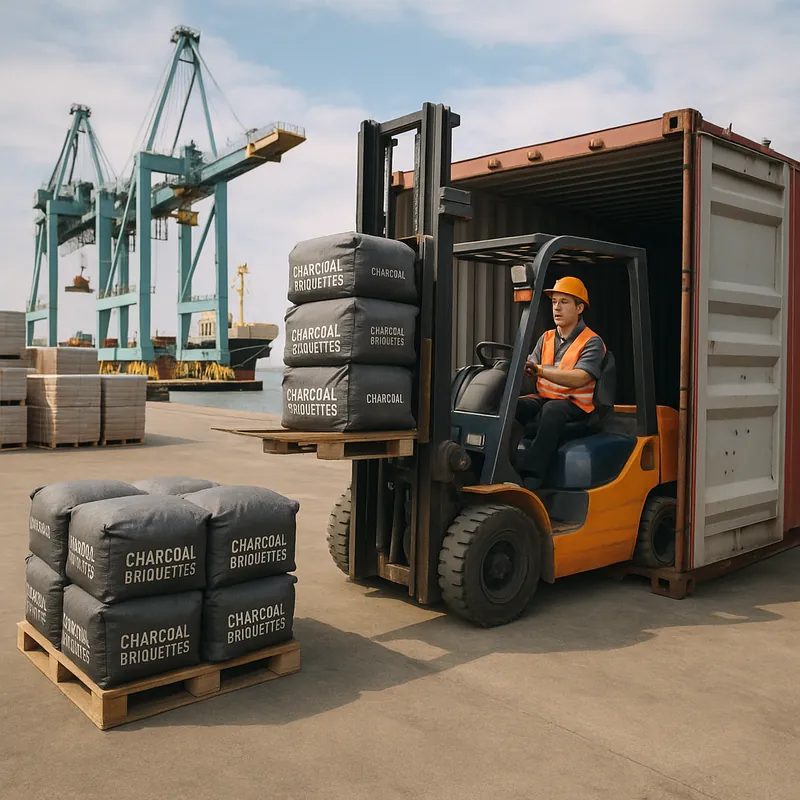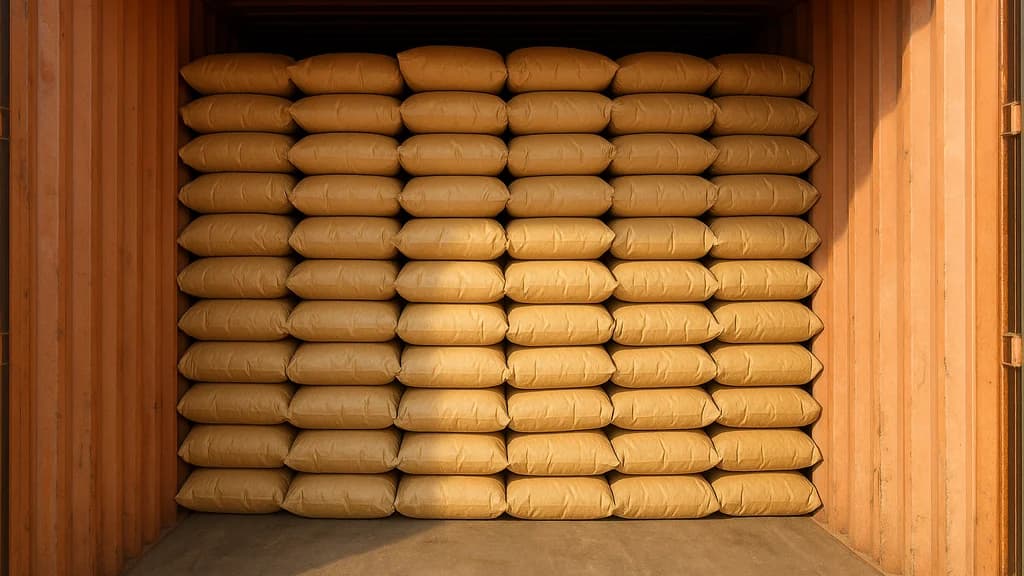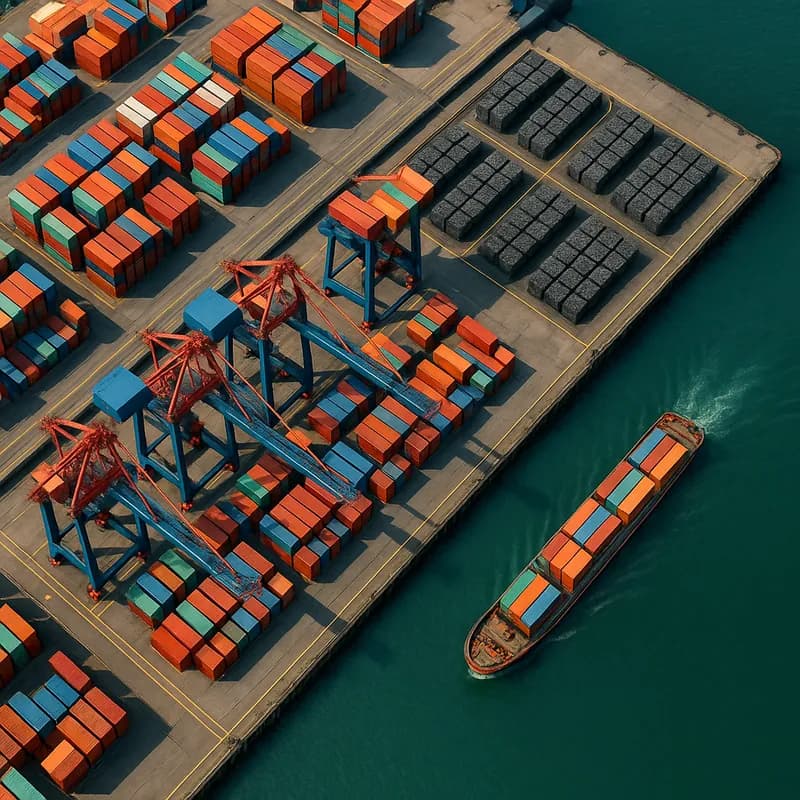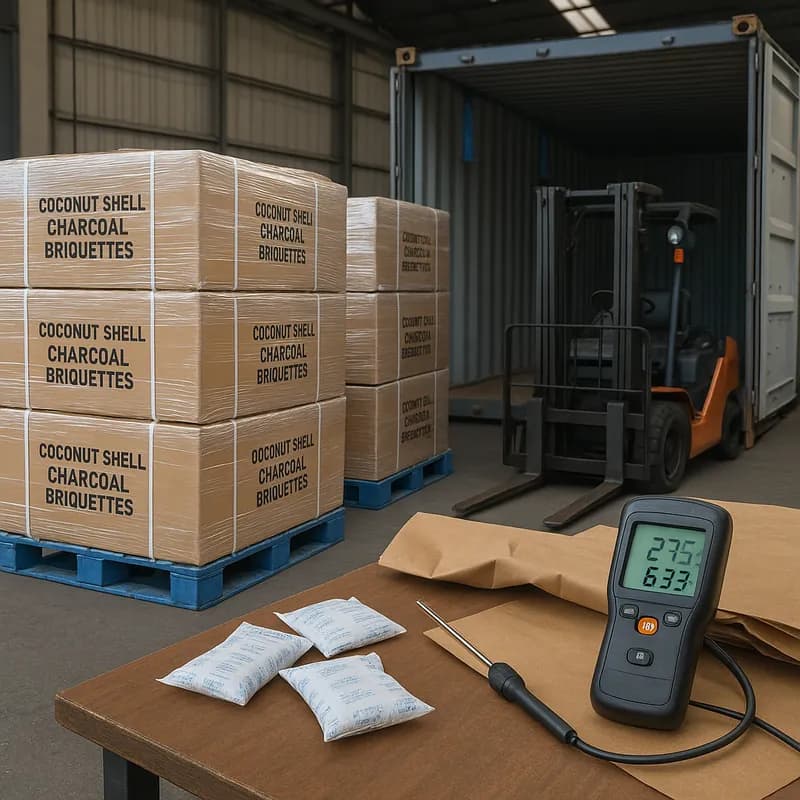Get a clear view of charcoal import shipping costs—real ranges, HS codes, DG pitfalls, and demurrage traps—so you protect margin. Run the math—start smart.
The Real Problem
Shipping charcoal internationally isn’t “just book a container and go.” The real cost sits in the gaps: misused Incoterms, the wrong HS code, a carrier who suddenly treats your load as dangerous goods, or a container that sits one day too long and racks up demurrage. Each of those can erase your margin on a full shipment.
In our experience, three out of five first-time importers underestimate total landed cost by 10–25%. The culprits are predictable: destination port fees, detention charges while waiting for customs release, and freight rate swings that show up between proforma and actual sailing. The last six months haven’t helped—rate volatility and equipment imbalances in Asia have pushed spot rates up and down by double digits in a matter of weeks.
Here’s the thing: charcoal is bulky, sometimes treated as a self-heating cargo, and it moves best in full containers under the right Incoterms. Nail those basics, and you remove 80% of the surprises. Miss them, and you’ll be negotiating storage fees instead of pricing strategy. Let’s fix that.
What Actually Works
How much does a 20-foot container of charcoal cost to ship?
Short answer: it depends on lane and timing, but we’ll give you workable ranges. From Indonesia (Jakarta/Tanjung Priok) to the USA West Coast, a 20’ FCL has recently ranged from about $2,200–$4,500 all-in ocean freight, with spikes up to $5,500 during peak or disruption weeks. To the US East Coast, add roughly $1,200–$2,000. Southeast Asia to EU main ports often lands at $2,800–$5,000 for 20’, with volatility tied to routing constraints.
Two practical notes:
- Per-ton math favors 40’ HC for briquettes. If a 20’ costs $3,800 and you load 17 MT, that’s ~$223/MT just for ocean freight. A 40’ at $4,800 with 26 MT is ~$185/MT.
- Book 3–5 weeks ahead and ask for direct or single-transshipment routings. We’ve found that reduces rollovers, which quietly add days and risk demurrage.
Which HS code should I use, and why does it matter?
Charcoal is HS 4402 (Wood charcoal, including shell or nut charcoal). Coconut shell charcoal typically classifies under 4402.90. Your exact subheading may vary by country, but 4402 is the family. Duty rates depend on the destination’s tariff schedule; many markets assess low or zero duty, others apply a modest duty and VAT. The HS code also shapes customs risk profiling and documentary requirements.
What to do:
- Pre-validate the HS code with your customs broker at destination before the first shipment.
- Request a written classification ruling if your market allows it. It’s worth the lead time.
- Ensure your commercial invoice clearly states HS 4402 and the product form (briquettes vs. lump, coconut shell vs. wood). Ambiguity invites delays.
Is charcoal dangerous goods (UN1361) for sea or air?
Vegetable charcoal can be considered self-heating and referenced under UN 1361, Class 4.2, depending on material and test results. However, most high-quality coconut shell briquettes with low volatile matter and controlled moisture ship as non-dangerous goods for sea freight—if supported by a Self-Heating Test (UN N.4) and an SDS/MSDS.
What works in practice:
- Provide a current Self-Heating Test report and SDS with the booking. Many carriers require it.
- Keep moisture low and packaging ventilated per carrier guidance.
- Avoid air freight for charcoal unless you’ve confirmed full DG compliance—air rules are far stricter.
We ship our BBQ Coconut Shell Charcoal Briquettes and Shisha Charcoal as non-DG with supporting test documents. That prevents mid-booking reclassification that can derail schedules and cost thousands.
FOB, CIF, or DDP: which Incoterm actually helps you?
- FOB (Free On Board): You control the ocean freight and insurance. Great if you have a trusted forwarder and want rate transparency. Most seasoned importers choose FOB for HS 4402.
- CIF (Cost, Insurance, and Freight): The seller books freight to your port. Predictable door price to the port, but destination charges and handling remain yours—and can surprise you. Good for first-time buyers if you trust the seller’s forwarder and ask for a breakdown.
- DDP (Delivered Duty Paid): Seller handles almost everything to your door, including import clearance and taxes. Sounds easy, but often impractical due to tax representation and compliance in your country. We rarely recommend DDP for charcoal.
Our rule of thumb: use FOB when you have logistics support; choose CIF when you need simplicity to the port and accept you’ll still manage local costs.
How many 10 kg bags fit in a 20’ or 40’ container?
It depends on product type (briquettes vs. lump), bag dimensions, and whether you palletize.
Typical ranges we see floor-loaded:
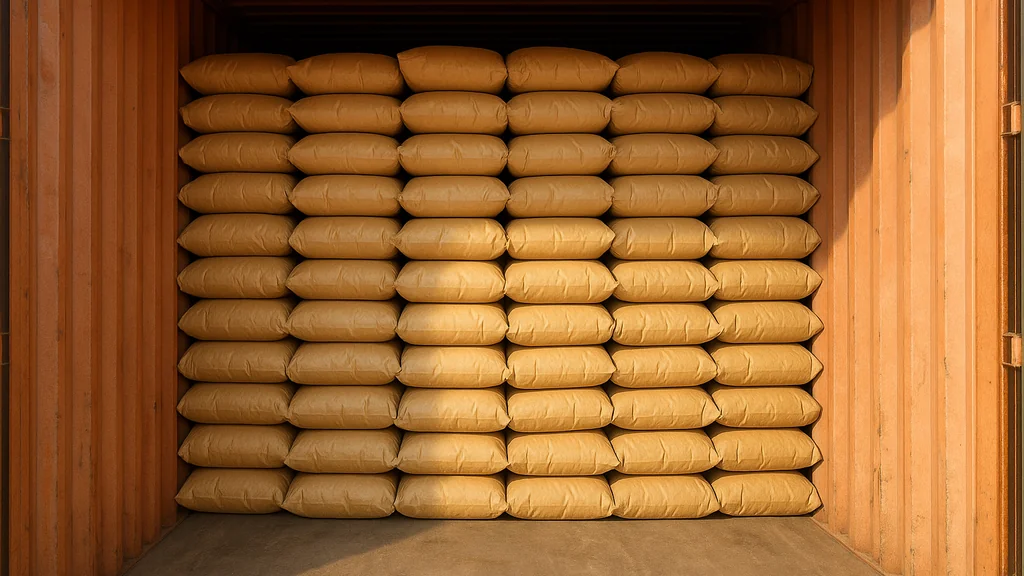
- Briquettes (10 kg bags):
- 20’: about 1,600–1,800 bags (16–18 MT)
- 40’ HC: about 2,500–2,800 bags (25–28 MT), watching road weight limits
- Lump charcoal (less dense):
- 20’: about 800–1,200 bags (8–12 MT)
- 40’ HC: about 1,600–2,000 bags (16–20 MT)
If you palletize, count on 10–15% fewer bags. We design our BBQ Coconut Shell Charcoal Briquettes cartons to maximize 20’ and 40’ HC utilization without exceeding legal weights—ask us for the current load plan that fits your lane’s road rules.
What port fees, demurrage, and detention should you expect?
Budget for:
- Terminal Handling Charge (THC), documentation, port security, and delivery order fees at destination.
- Customs exam/scanner fees if selected.
- Demurrage (container sits at terminal past free time, usually 5–7 days): often $75–150/day for 20’, $120–200/day for 40’, escalating in tiers.
- Detention (you keep the container outside the terminal past free time): similar daily ranges, also escalating.
Two low-hanging wins:
- Pre-clear customs so you can pick up the container within free time.
- Book truckers early and align arrival with warehouse receiving hours. One missed appointment can trigger three days of detention.
Practical takeaway: Plan around free time as a hard deadline, not a suggestion.
Why Most People Get This Wrong
They treat “freight” as the cost. It’s not. Landed cost is a stack: origin charges, ocean freight, insurance, destination THC/DO/security, customs/brokerage, duty, VAT/GST, port storage, demurrage/detention, and final delivery. Miss two of those and your per-bag economics fall apart.
Another trap is LCL for “trial orders.” Charcoal’s cube-to-weight ratio punishes LCL. Between per-cubic-meter charges, handling, and higher damage risk, we’ve seen LCL end up 30–60% more expensive per ton than a lightly loaded 20’. If you’re under a full container, consider consolidating SKUs or partnering on a shared FCL rather than defaulting to LCL.
Hazmat misconceptions bite, too. Some shippers assume charcoal is always non-DG; others panic and book as DG unnecessarily. The reality is conditional. Without a proper Self-Heating Test and SDS, carriers may reclassify last minute—cue rebooking fees and delays. With the documents, most coconut shell briquettes move as non-DG on sea freight without drama.
Finally, Incoterms aren’t payment terms. Buyers accept CIF thinking “door-to-door,” then get blindsided by destination charges. Or they push for DDP and wonder why clearance gets stuck on tax representation. Match Incoterms to your logistics maturity, not just convenience.
Takeaway: Precision on classification, Incoterms, and free-time planning beats “cheap rates” every time.
Your Next Steps
How do I calculate landed cost for HS 4402 charcoal?
Use a simple framework:
- Cargo value (FOB) + origin charges + ocean freight + insurance = CIF value.
- Duty = duty rate × CIF.
- VAT/GST = tax rate × (CIF + duty).
- Add destination THC/DO/security, customs/broker fee, port storage (if any), delivery to warehouse, and any bank/inspection fees.
Example (illustrative):
- 20’ briquettes, 1,700 bags × 10 kg = 17 MT
- FOB unit value: $700/MT → cargo $11,900
- Origin charges: $450
- Ocean freight: $3,800
- Insurance: $50
- CIF = $15,750
- Duty at 5% = $787.50
- VAT at 10% on (CIF + duty) = $1,653.75
- Destination/last mile/broker: $1,400
- Estimated landed cost = $20,042 → ~$1,179/MT or ~$11.79 per 10 kg bag
Swap in your actual duty/VAT and local fees. This is your landed cost calculator in practice.
What should I do this week?
- Lock your Incoterm: Choose FOB if you have a trusted forwarder; otherwise ask for CIF with a transparent breakdown.
- Validate classification: Confirm HS 4402 with your broker and get documentation aligned (commercial invoice wording, SDS, Self-Heating Test).
- Optimize container choice: If you’re shipping briquettes and can reach 16–18 MT, go FCL 20’ minimum. If you’re above 22–24 MT, price a 40’ HC—the per-ton freight usually improves.
- Plan for free time: Pre-arrange customs clearance, truckers, and warehouse receiving to avoid demurrage and detention. Treat day 1 of free time like a countdown clock.
- Sense-check your math: Calculate delivered cost per 10 kg bag with current freight. If the margin is thin, adjust volume or switch routing before you book.
If you’re weighing product specs against shipping reality, we can help you balance both. Our BBQ Coconut Shell Charcoal Briquettes ship with proven load plans, low-ash specs, and non-DG documentation that keep containers moving and costs predictable.
If you have questions about Navigating International Shipping Costs for Charcoal Importers or need expert guidance, contact our team.
We’ve shipped to 50+ countries, and the same patterns hold: get the Incoterm right, document for non-DG where applicable, load smart, and manage free time like your margin depends on it—because it does.
